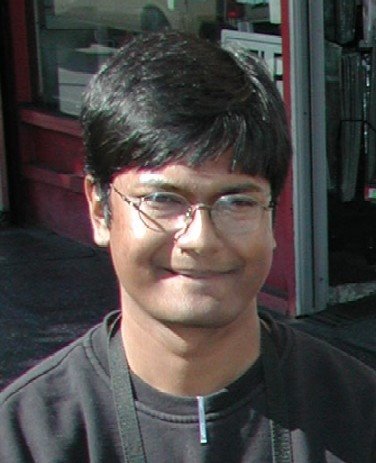When I was in London for around 8 months in 2001-2002 I used to marvel at the content of their news. An ordinary person like me being kidnapped or going missing would typically occupy the headlines on all news broadcasts for weeks at a stretch. But back in India a similar incident would have to really stand out to even merit a mention. Maybe it is due to the burgeoning population of India, but somehow the life of a person doesn't seem to hold much value in the greater scheme of things. People get shot dead and the culprits walk free because they have managed to buy the witnesses out. Ask Jessica Lal or Priyadarshini Mattoo's relatives. Or the relatives of the BMW hit and run victims. Vermin like Manu Sharma, Santosh Kumar Singh and Sanjeev Nanda are murderers walking free.
I had just started work on my first job in the erstwhile WebTek in Bangalore. Typically the first couple of months of one's professional life are spent in finding one's bearings. Things were no different for me: I used to sample different places to eat every evening (I did not know how to cook), I was saving up for buying a two-wheeler and I was trying to make new friends.
My friend Rohit Khandekar was visiting Bangalore for a couple of weeks for a conference in IISc. Along with my housemates Abhishek Saxena and Umesh Batra we made plans to do a day-long trip to Mysore. Roughly at the same time that we were returning from Mysore at night a veteran Kannadiga thespian called Rajkumar was kidnapped along the same route by the notorious sandalwood smuggler Veerappan.
The next day office closed early. The reason was that fans of Rajkumar had started rioting in parts of the city and our company's management did not want to put us in a situation where we would have to brave riots to go home. Those days I was finalising the purchase of my motorbike. The bike was decided, registration was done and the balance amount needed to be paid. While I would have the entire balance amount when my salary came in, pay-day was still a few days away. So I had decided to take a loan from Abhishek for a few days to speed up the process. Taking advantage of the fact that office was out I decided to visit the HSBC ATM in Manipal Centre on Dickenson Road with Abhishek.
Abhishek put in his ATM card and withdrew Rs. 1000/-. After closing the transaction he realised that he was supposed to withdraw Rs. 5000/-. So he put his card into the ATM machine again. And then a mob appeared at the end of the road opposite Manipal Centre. And the machine started taking very long to process his transaction. As the mob drew closer we started to panic. The card was still stuck!!! The mob was around 30m away now. The card came out. We took the card and the money and fled the scene from another exit of Manipal Centre. That evening we learnt that the mob had torn down the ATM. We counted our blessings.
This kind of a tale has, I am sure, happened to quite a few people. Hell, I remember sitting in an autorickshaw as a 12-year-old not 20m away from a burning bus in Hyderabad during the Ram Janmabhoomi - Babri Masjid flare-up in 1990-1991 (when L. K. Advani was arrested during V. P. Singh's regime). I also remember sitting in London when not far from my parents' home in Baroda there was communal carnage instigated by Narenda Modi.
People talk of India's diversity in glowing terms. Indeed there is no other country anywhere in the world that has such a rich blend of culture, tradition and people. Ironically it is this diversity that gets India into trouble every now and then. Just consider:
- It is ridiculously simple to cause a riot between Hindus and Muslims. All it needs is a few miscreants.
- The esteemed elected body of India managed to cause mass upheaval and subsequent massacre of the otherwise communally peaceful Sikhs.
- You can give special privileges to one section of society (and be assured of its fealty) and make the other sections of society completely hostile to this one.
- You can board a train from Delhi to Calcutta and be sure of a fight happening between people of UP and Bihar.
Paschatey rekhechho jaarey se tomarey paschatey tanibeIt is indeed ironic that Tagore's quote about people whom we are leaving behind pulling us back should continue to bite us 60 years after our independence. An Indian's life seems to be just as valuable as its rulers deem fit!- Rabindranath Tagore
